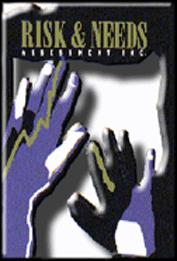Anger Management Profile (AMP) is designed for court and anger assessment treatment settings.
The AMP is particularly useful in substance (alcohol and other drugs) abuse-related cases. It is also used in probation
and community corrections program screening.
The AMP has 123 items and takes 25 minutes on average to complete. It has a sixth grade reading level. AMP reports are computer
scored and printed on-site within 2 1/2 minutes of test completion.
The AMP evaluates the client's test taking attitude and identifies faking. It measures substance use and the severity of abuse.
The scale score recommendations are in accordance with American Society of Addiction Medicine (ASAM) guidelines. It also quantifies
anger (violence) potential. And the AMP measures the client's ability to cope with stress. It's an understatement to say the AMP is
much more than just another alcohol or drug test.
The Anger Management Profile (AMP) has five scales (measures):
1. Truthfulness Scale,
2. Alcohol Scale,
3. Drugs Scale,
4. Anger (Violence) Scale,
5. Stress Coping Abilities Scale
FIVE AMP SCALES (MEASURES)
1. Truthfulness Scale:
measures how truthful the client was while completing the AMP. It would be naive to assume that clients always tell the
truth -- particularly in court-related settings. Defendants often attempt to minimize their problems and concerns. The
Truthfulness Scale detects denial and faking.
2. Alcohol Scale: measures alcohol use and severity of abuse. Alcohol refers to beer, wine
and other liquors. This scale measures the severity of alcohol abuse while identifying alcohol-related problems.
3. Drugs Scale: measures the severity of drug (marijuana, crack, ice, LSD, cocaine, amphetamines,
barbiturates and heroin) use and abuse while identifying drug-related problems. This scale is independent of the Alcohol Scale.
4. Anger (Violence) Scale: measures the client's propensity for using force to injure, damage or
destroy. This scale identifies people that are dangerous to themselves or others.
5. Stress Coping Abilities Scale: measures the client's ability to cope effectively with
stress, tension and pressure. Stress exacerbates emotional and mental health symptoms. This is a non-introversive way to screen
diagnosable mental health problems.







